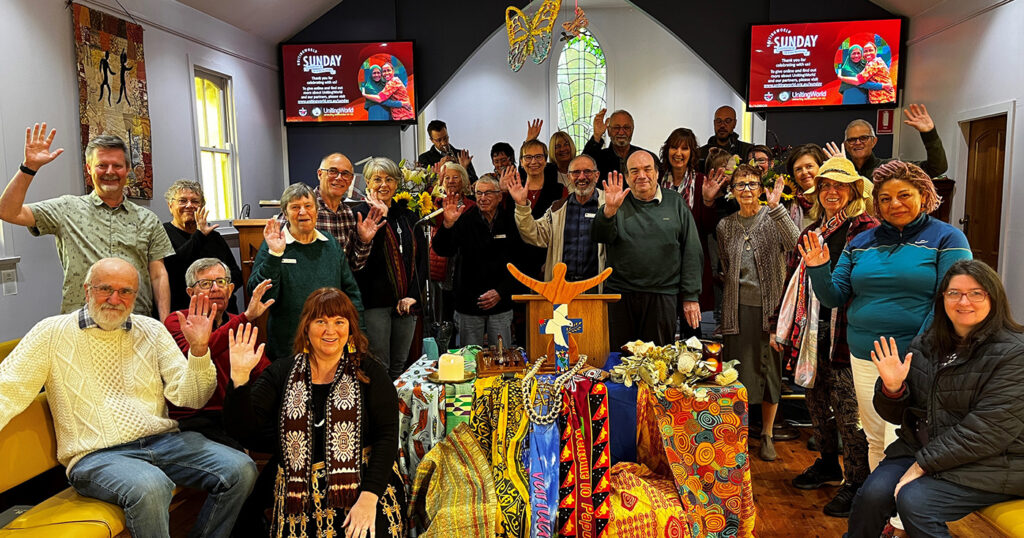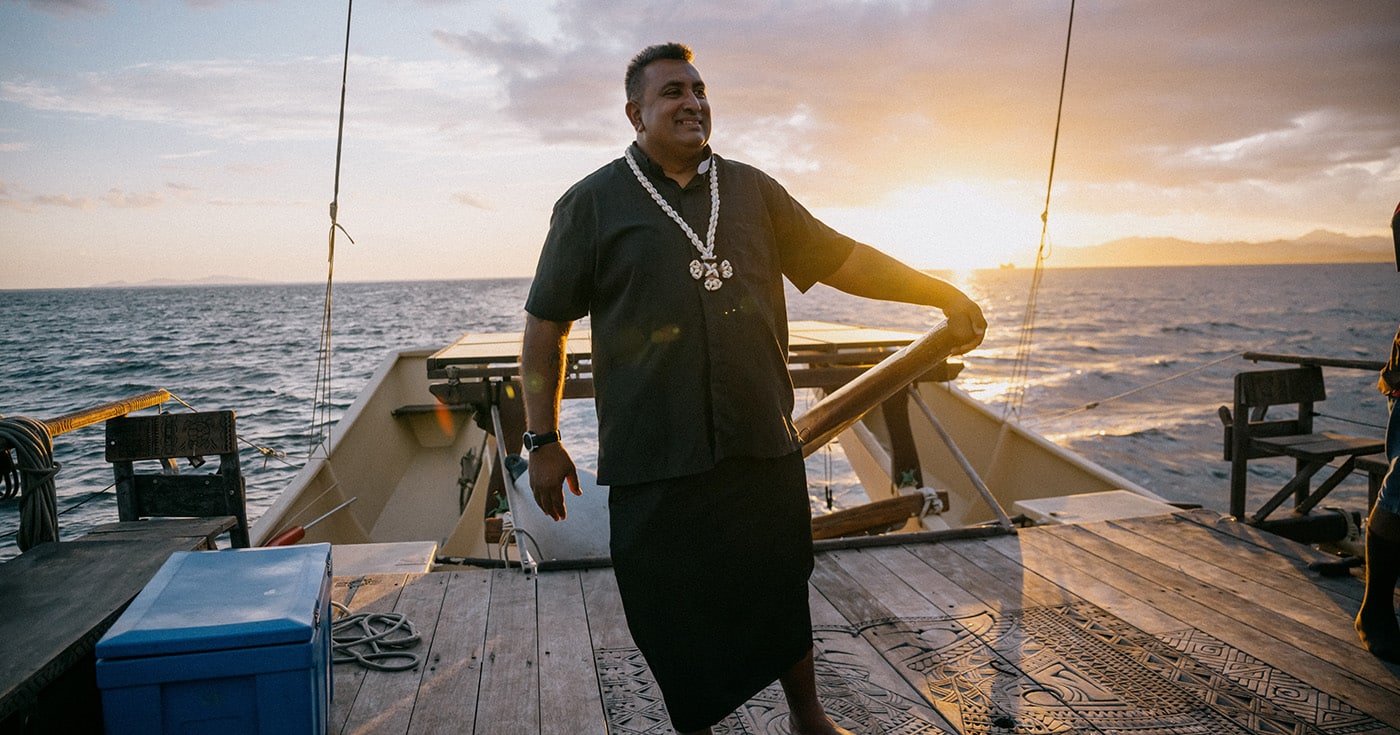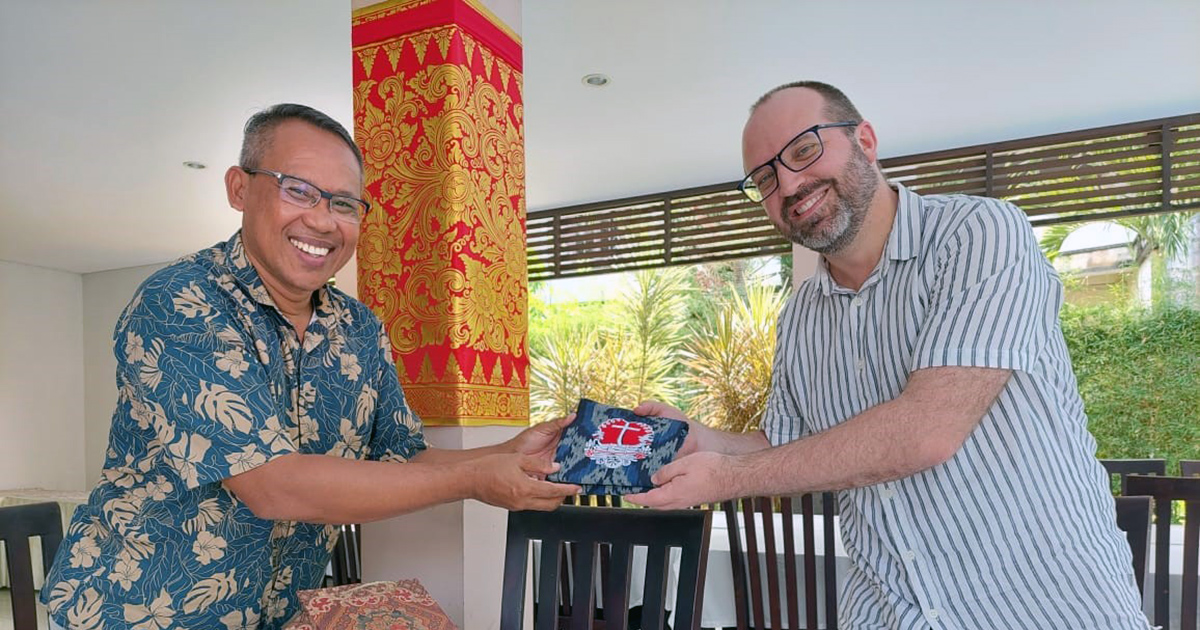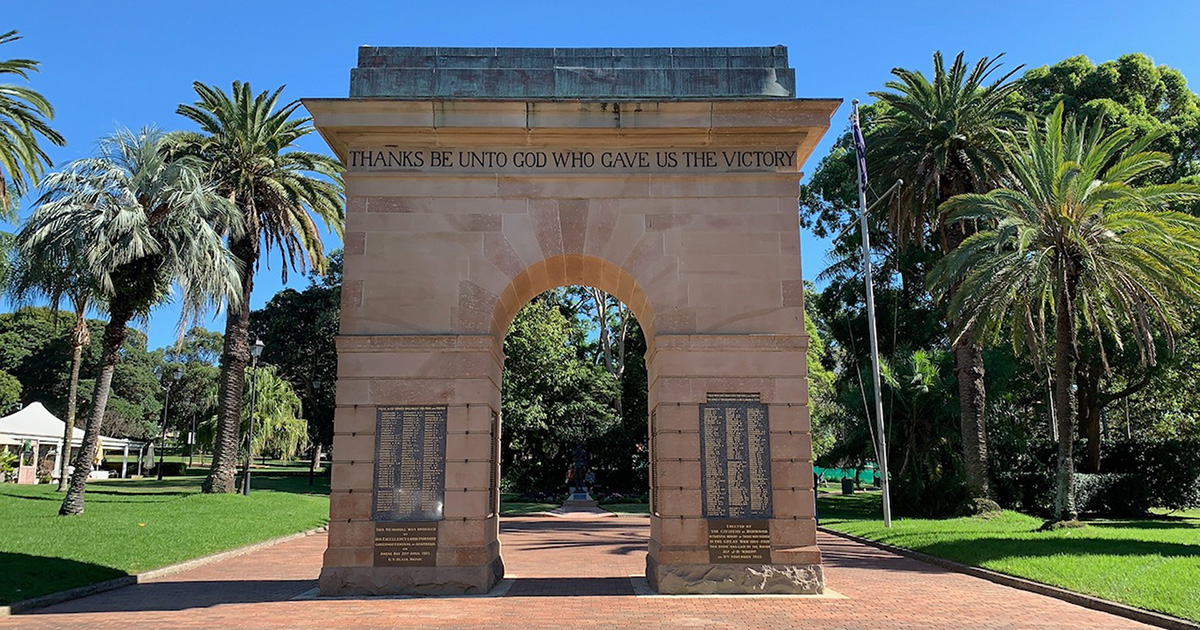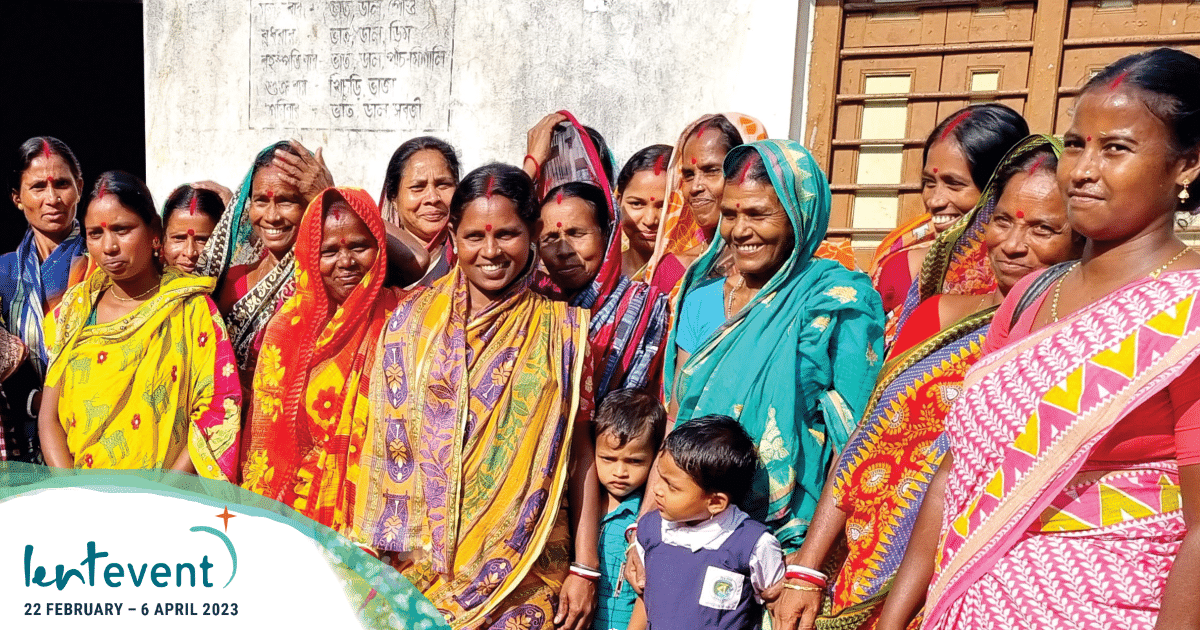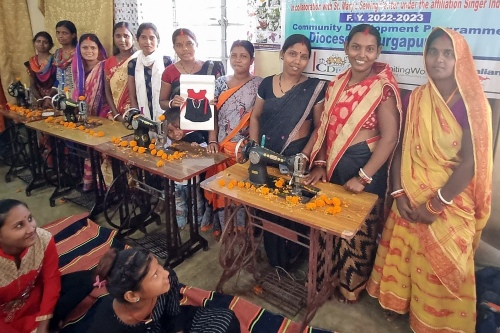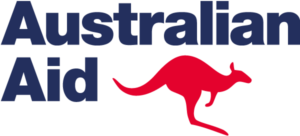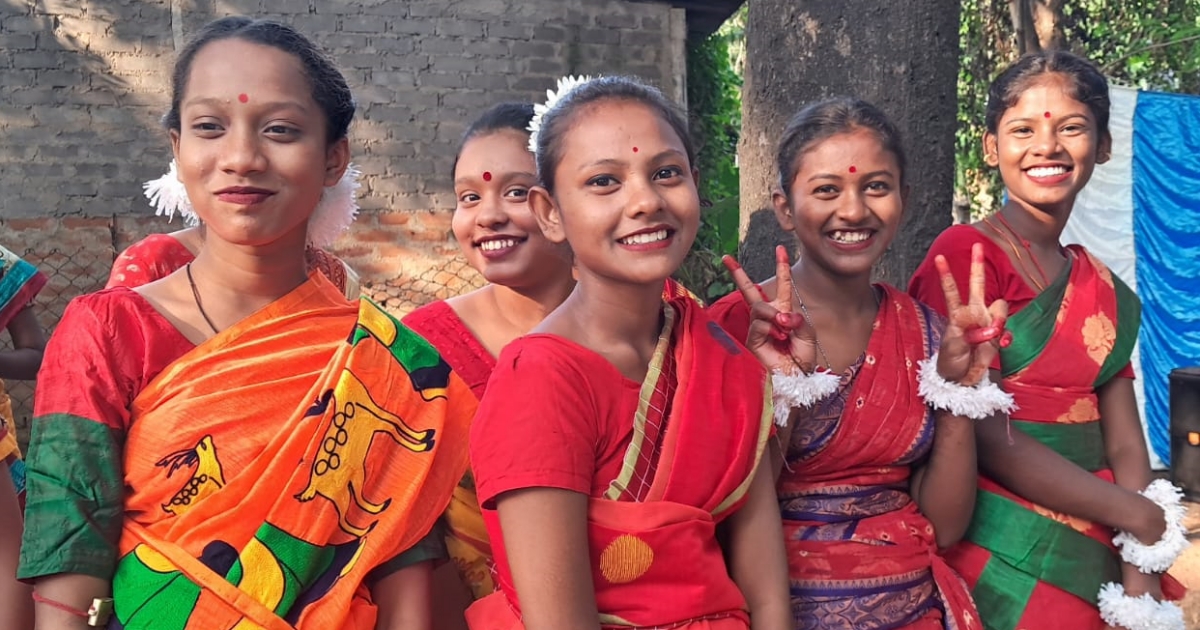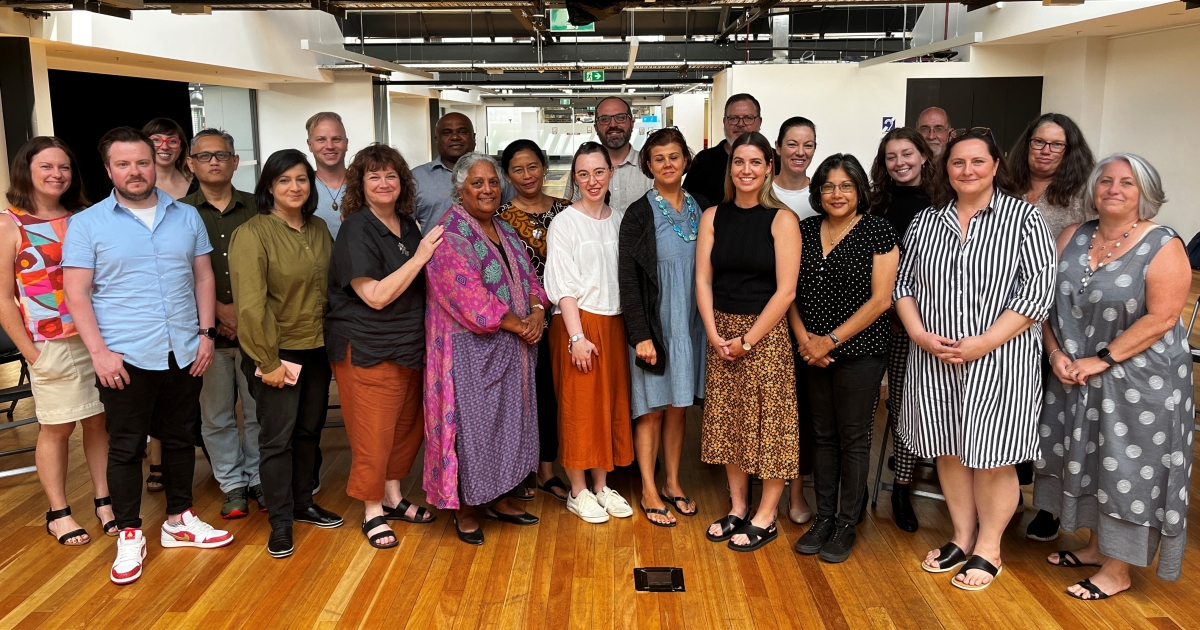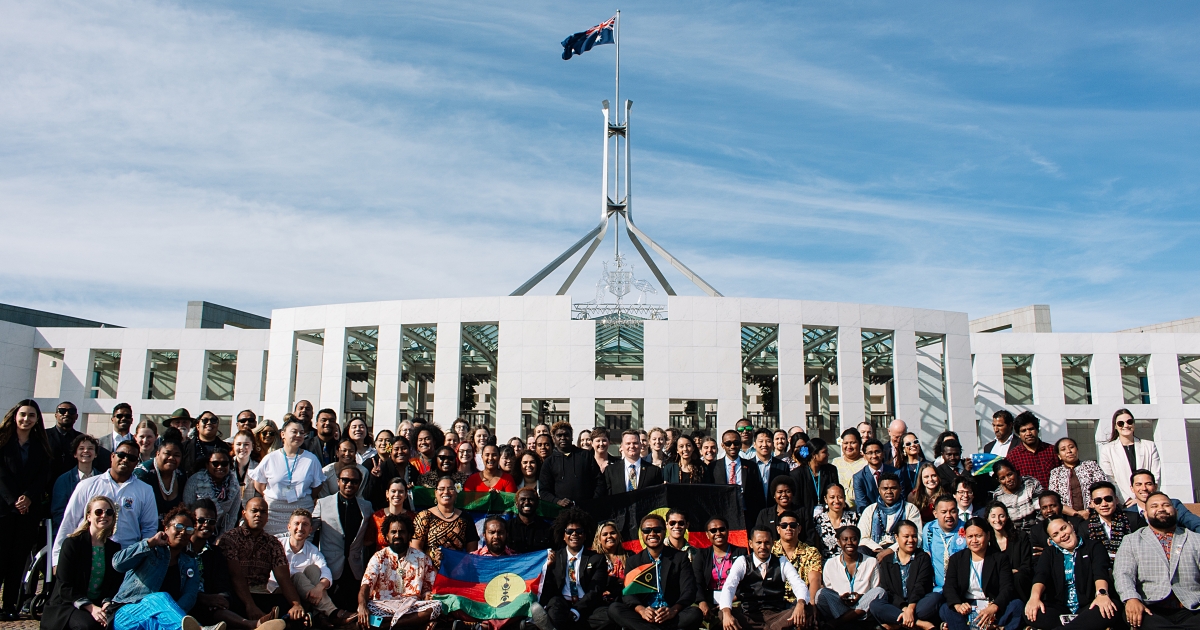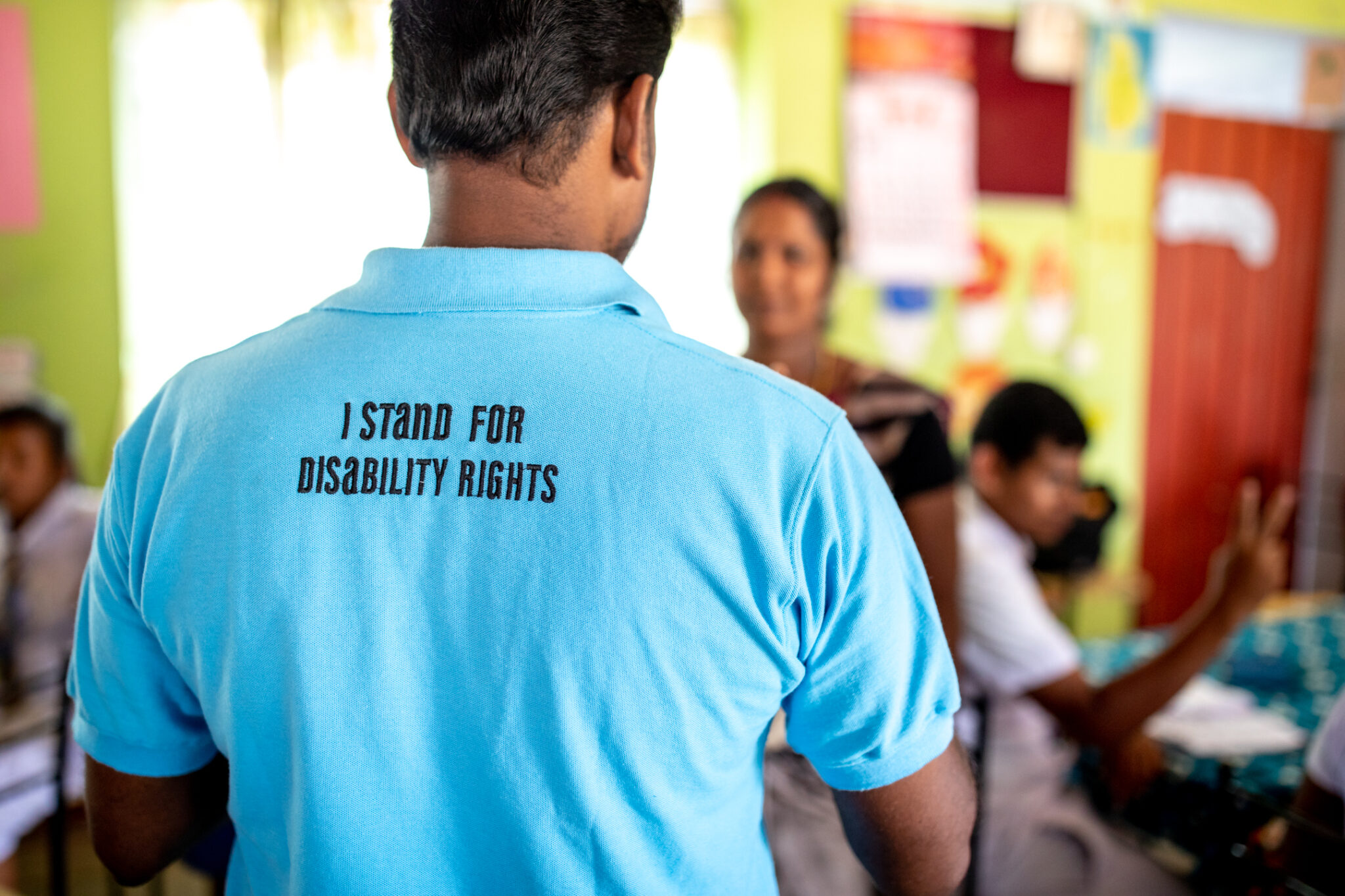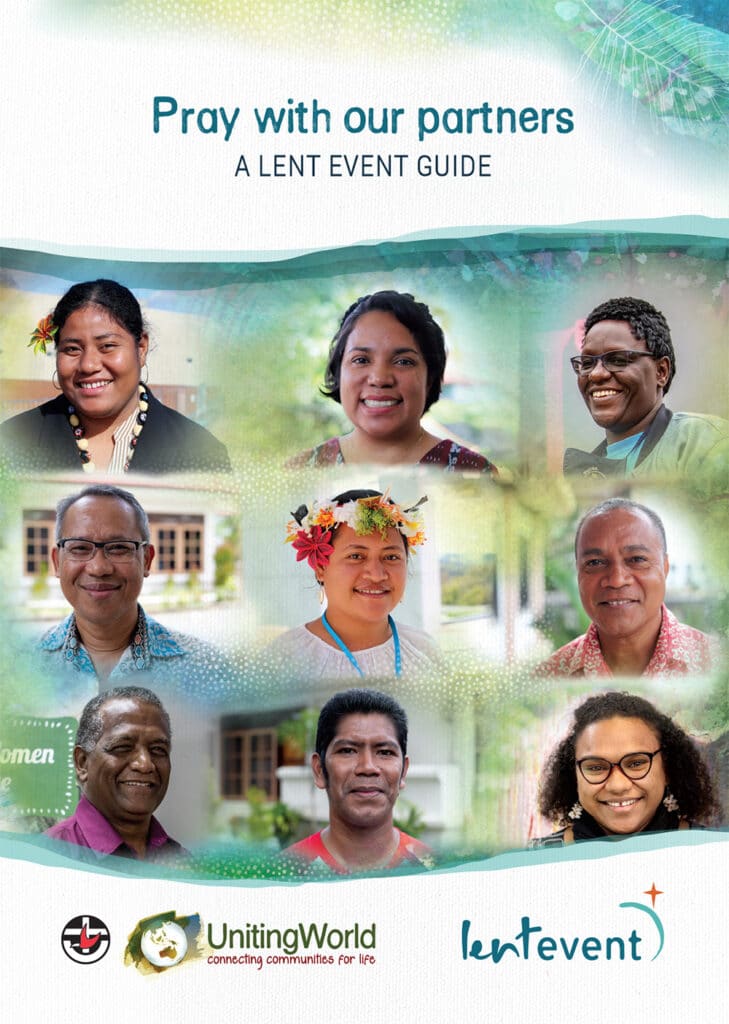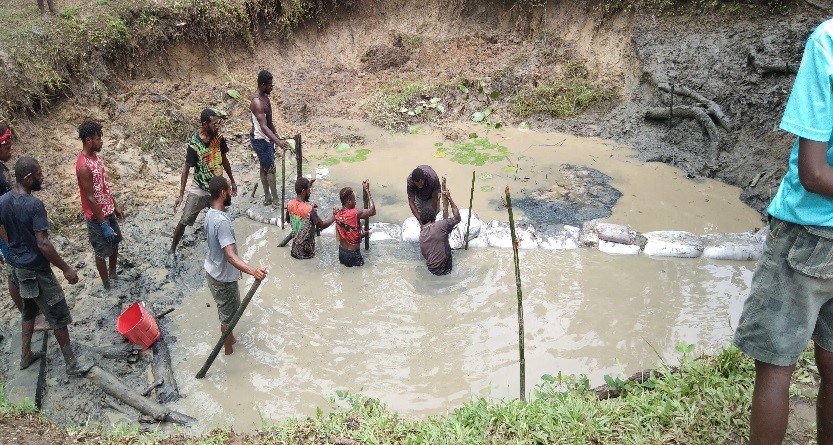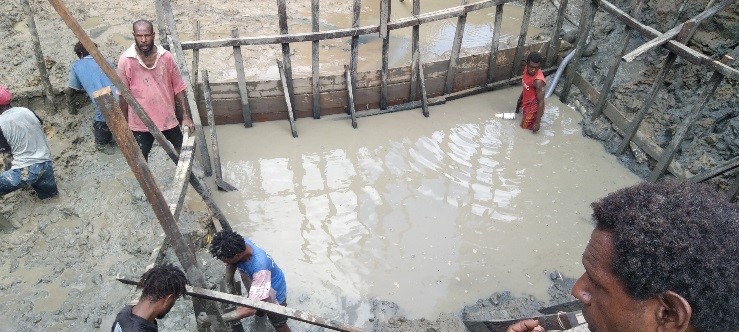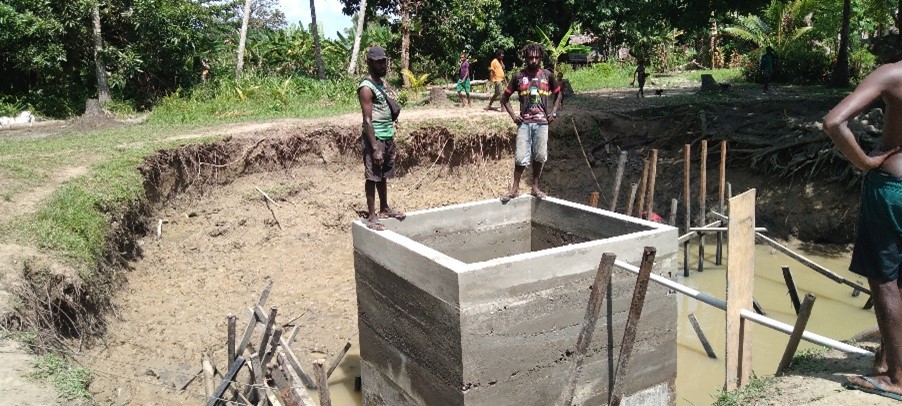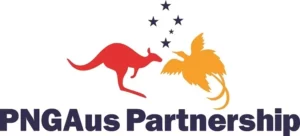Representatives from eight of our partner churches in the Pacific and young people from the Uniting Church in Australia (UCA) and the Uniting Aboriginal and Islander Christian Congress (UAICC) were part of the inaugural Pacific Australian Emerging Leaders Summit (PAELS), held in Canberra in December 2022.
100 young people from 14 countries were brought together by Micah Australia* and the Pacific Conference of Churches to build relationships and advocate for the issues that matter to them.
Through the generosity of UnitingWorld supporters, we were able to sponsor two young women from our partner church in West Papua to join the delegation. They shared powerful stories from their homeland during the Summit, and also visited a Uniting Church in Canberra that is home to a large West Papuan diaspora.
The first two days of PAELS were led by Aboriginal and Torres Strait Islander Christian leaders. The delegates spent the first two days listening, learning, sharing their cultures and experiences and being trained and equipped for political advocacy. The deep conversations and learning from First Peoples continued as the delegates were invited to the Aboriginal Tent Embassy, where they received a generous welcome and storytelling from Elders.
Then over two days in Parliament House, delegates met with 84 Members of Parliament. The vision that the PAELS delegation brought to their meetings in Parliament was:
… to see healthy environments, empowered young people, and flourishing communities across the Pacific region. This is a vision that will only be realised in full when communities enjoy self-determination and when no one is left behind.
During the meetings, delegates shared their personal stories and heard from our nation’s leaders about their own experiences and hopes for our region.
UnitingWorld partner networking
PAELS was also a chance for representatives from our partner churches from Tonga, Papua New Guinea, Fiji, Tuvalu, Kiribati, Samoa, the Solomon Islands and West Papua to meet with UCA and UAICC members.
Below we share what some of the young leaders had to say about PAELS and the future.
Raúl Sugunananthan
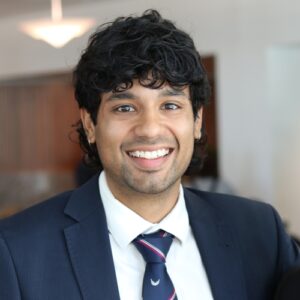
Uniting Church in Australia
“Connecting with leaders from across Australia and the Pacific was such a valuable experience because it showed me the vibrancy and diversity of the church beyond my Inner-West Sydney bubble.
Through the amazing young leaders I met, I learnt first-hand that God is moving through the leadership of First Nations communities from Arnhem Land to Sydney.
God is moving through the Pasifika songs and stories woven throughout their island nations and diaspora communities.
God is moving through the courage and determination of people striving for self-determination across our region.”
Tetavaa Namoto 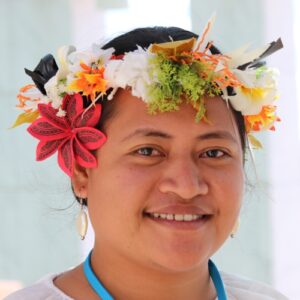
Tuvalu Christian Church
“It was such a great experience to share some of the issues affecting my home and our islands. We have experienced cyclones, drought, climate change and sea‑level rise. They say we can migrate, but I don’t want to be a refugee. I think that when we lose our land, we would lose our culture too. We pray, pray, pray that climate change won’t happen and won’t affect future generations.
I love meeting other young people [at events like this] because we can share stories and it makes me realise there are more people struggling and also working for change.”
Hayden Charles 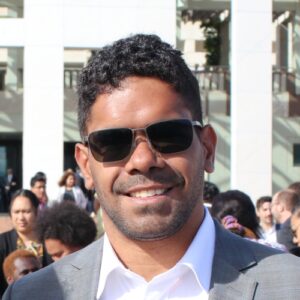
Wiradjuri man and Uniting Church in Australia member
“I had the privilege to be in a group with members from Sydney and Kiribati to share our vision of the region with four parliamentarians. Our shared vision will be the focus of the world in a couple of years and that’s why we started these conversations in 2022.
I hope we as leaders in the Pacific will work side-by-side to keep the conversations at the forefront of these parliamentarians and keep working to build sustainable partnerships in our region.
I would like to thank the team at Micah and all the partners that helped bring together this amazing group of young leaders.”
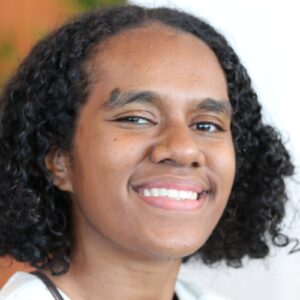
Grace Talei Tuiono
Fijian-Australian Uniting Church in Australia member
“No one has the same story. Every story is unique in their own way, and every voice is important. I want to use my voice to tell people of different abilities that they matter.
And as a young woman, I want to tell the world, ‘You can do it! You have skills and abilities to contribute.’ I learned that perspective from my mother and father, who’ve never just seen my disability – they see God in me.
I am so grateful that God gave me a voice to share here at Parliament and make a difference. Not everybody gets that opportunity. I may fall, I may fail, but God gave me the ability and a choice to take it. And when I take it, I believe God will provide for me along the way.”
* Who is Micah Australia?
Micah Australia is a coalition of churches and Christian organisations raising a powerful voice for justice and a world free from poverty. UnitingWorld is a member of Micah Australia.
Where can I find more info about PAELS?
The Pacific Australian Emerging Leaders Summit was an initiative funded by the Department of Foreign Affairs and Trade’s Office of the Pacific and coordinated by Micah Australia.
Discussions at PAELS focused on key development priorities identified by research (surveys and conversations) among Pacific delegates prior to the Summit. The findings were summarised in the report The Pacific We See, which was available to delegates and MPs during the event. You can read it for yourself here.
If you are interested in attending PAELS 2023, register your interest by emailing marcusc@unitingworld.org.au |
Group photos by Amelia Dorey for Micah Australia. Individual photos by UnitingWorld staff.
